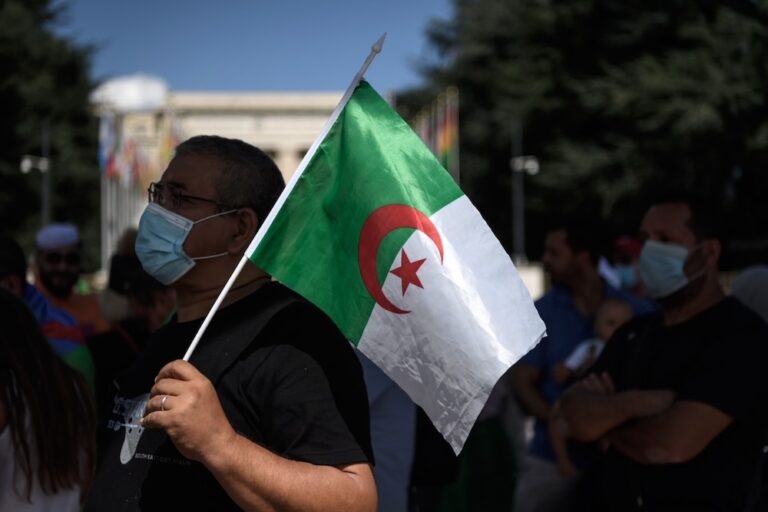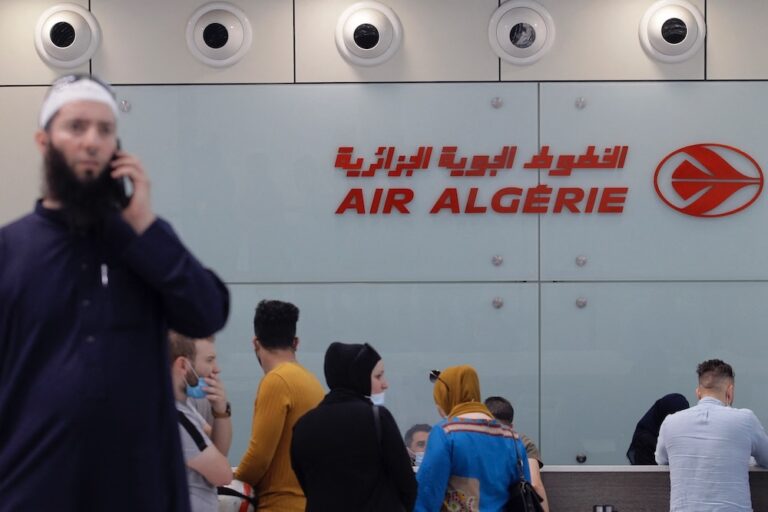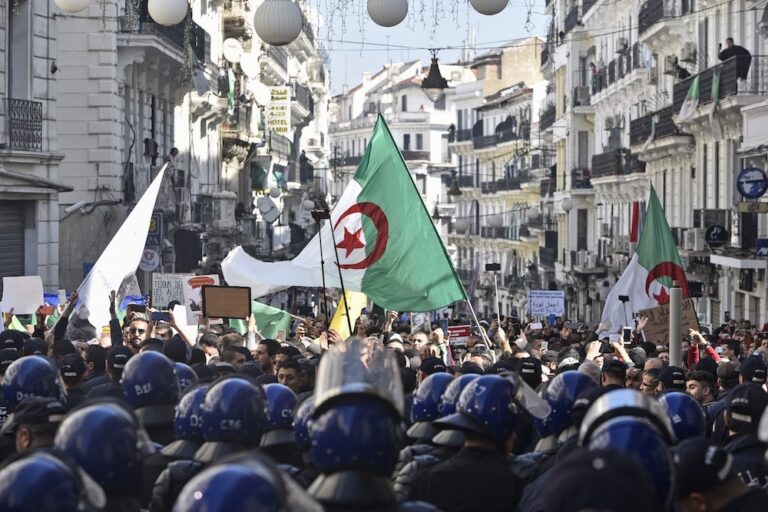(RSF/IFEX) – In a letter to Minister of Culture and Communications Mohammed Abou, RSF protested the Algerian authorities’ refusal to grant visas to “Libération”, “Le Figaro” and “Le Monde”, on the occasion of the French minister of external commerce’s visit to Algeria. RSF Secretary-General Robert Ménard asked the Algerian minister to see to it that […]
(RSF/IFEX) – In a letter to Minister of Culture and Communications Mohammed Abou, RSF protested the Algerian authorities’ refusal to grant visas to “Libération”, “Le Figaro” and “Le Monde”, on the occasion of the French minister of external commerce’s visit to Algeria. RSF Secretary-General Robert Ménard asked the Algerian minister to see to it that the granting of visas no longer be decided in an arbitrary fashion. “Why grant visas to some journalists but not to others? Considering the serious events which are currently taking place in Algeria, foreign journalists should have the possibility to freely cover the news, irrespective of the media outlet for which they work,” he added. Moreover, RSF recalled that on 16 May 2001, the National Assembly adopted a penal code reform bill, which includes provisions for heavy fines and prison terms ranging from two months to one year for press offences.
According to information collected by RSF, a dozen French media outlets requested visas to travel to Algeria to cover the French minister of external commerce’s 14 June visit to Algiers. However, three French dailies (“Libération”, “Le Figaro” and “Le Monde”) were denied visas. Thierry Oberlé, who oversees Algerian affairs at “Le Figaro”, told RSF that that he has been denied the right to visit Algeria for one year. The last time he was granted a visa was on the occasion of Abdelaziz Bouteflika’s visit to France in June 2000. Since that time, several applications submitted to the Algerian embassy in Paris have been rejected. According to him, “visas are only granted relatively easily when there are elections or official events.” In June 2000, an official from the Algerian Ministry of Communications told RSF that he “did not see why journalists should come to Algeria when there is no particularly important event to cover.” José Garçon, an Algeria specialist from “Libération”, was last granted a visa during the summer of 1999, on the occasion of Foreign Affairs Minister Hubert Védrine’s visit to Algiers. As for Florence Aubenas, another journalist resposible for Algerian affairs at “Libération”, she last received a visa in November 1999, when a referendum took place on civil harmony. “We generally submit applications every two months. We never get a refusal. We just don’t receive any response at all,” explained Aubenas. “We only see this kind of thing in four or five countries of the world,” she added.
The issuing of visas to foreign journalists officially falls under the authority of the Ministry of Communications’ services. Asked why certain journalists have been denied visas for years, a ministry official told RSF in June 2000 that he did not know “at what level such decisions were made.” He added that the Algerian state reserves “the right to refuse visas to pseudo-journalists who campaign against Algeria’s national dignity and do not respect ethics. Algeria is a sovereign country and can refuse to grant visas to anybody who lobbies against its national interests.”


